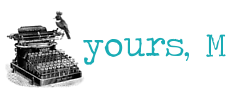Now that I've found some motivation again, it's time to move on with my Favorite Things series. I'm not doing this series in any particular order, but- if I were? This book- The First Days of School- would definitely top the list.
Quite literally, this book walks you, step-by-step, through the first days of school. I don't know about you, but my first day of school as a new teacher was on the terror scale somewhere between an encounter with a king cobra and falling off a 20-story building. This book gave me tips, tricks, and the confidence to get through it. I still reference it every year before school begins.
The First Days is broken up into five "units":
1. Basic Understandings- The Teacher
2. First Characteristic- Positive Expectations
3. Second Characteristic- Classroom Management
4. Third Characteristic- Lesson Mastery
5. Future Understandings- The Professional
My favorite units are those in the middle, which really deal with the day-to-day functions of a classroom. Wong and Wong cover a lot of that "stuff" no one teaches in college-- how to introduce yourself, best practices to keep your classroom running smoothly and how to implement them, etc. There's a large focus on "the first days of school" because they're so crucial in laying the groundwork for the rest of the year.
My favorite thing about The First Days is that it reminds us of the importance of positivity with our students. This book is a classroom management and lesson-planning Bible. No wonder it's one of my Favorite Things!















